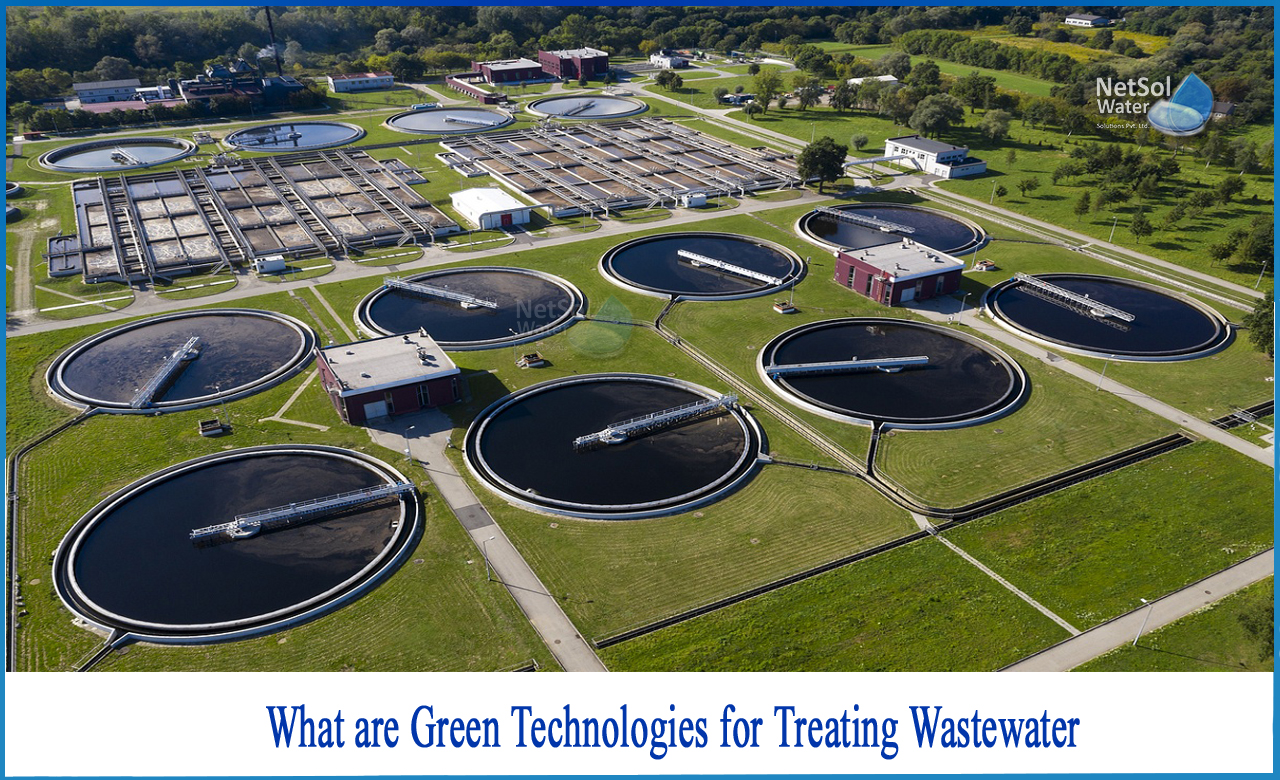What are Green Technologies for treating wastewater?
Water scarcity is becoming more common as the demand for water grows. The need to devise ways to ensure its long-term viability is becoming increasingly pressing. Experts are currently looking at wastewater processing as a result of technological advancements.
What is a Wastewater Treatment?
Wastewater treatment is a procedure for removing polluting chemicals and pollutants from water. It handles polluted waters from home and industrial locations and safely restores them to the Environment for irrigation, industrial usage, and drinking. Effective urban water management is required to attain these goals.
In this article, we'll learn about the role of Green technologies in wastewater treatment.
What are advanced green technologies?
Advanced green technologies (AGTs) are a set of realistic approaches and materials that use non-toxic chemical processes, clean energy sources, and environmental monitoring to reduce or eliminate the negative effects of human activities. These attempts are to improve sustainability, by securing societal demands without causing further damage to or depletion of remaining natural resources.
Why should we opt for advanced green technologies?
Traditional wastewater treatment processes are costly and hard to operate and maintain. The most popular green solutions for sustainable water management are new wastewater treatment technologies, such as bioreactors and bio-filtration used by sewage treatment technology.
A: Bioreactors are containers that hold bacteria and other microbes. Biochemical reactions are sped up by the addition of oxygen. As a result of these processes, dangerous contaminants will eventually be converted to non-toxic forms.
B: Water is carried through the biofilm in bio-filtration either up-flow or down-flow, and in a continuous or discontinuous way. The immobilized live microorganisms speed up the breakdown of organic debris and contaminants in the wastewater during this phase.
This could be accomplished:
1: When manufactured goods and products are recycled;
2: By improving human production and consumption behavior to reduce waste and pollution;
3: Clean alternative technologies and energies are being developed to replace those that have been shown to harm human health and pollute the environment;
4: By establishing cost-effective approaches for implementing and commercializing related technologies, as well as supporting the creation of new employment and vocations in the industry.
Use of Green Technology in Water Recycling
The following ar?e some of the water reclamation processes that can be used:
1: Membrane Bioreactor Solutions - These systems combine biological, secondary, and tertiary wastewater treatment into a single process. Its goal is to lower the carbon footprint associated with sludge sewage treatment. It employs a high amount of organic and microbial removal, as well as nutrient removal.
2: Reverse Osmosis Systems (ROS) - This is a supportive treatment that is applied after the water has been pre-treated to eliminate undesired particles. For safer use, the water is desalinated using a reverse osmosis system, which provides an effective barrier against microorganisms. It makes use of a semi-permeable membrane, which is a thin membrane with microscopic pores that allows only pure water to pass through.
3: Ultrafiltration Solutions -Ultrafiltration solutions are widely employed when water is treated for drinking purposes. It employs membrane filtration, in which particles are separated from liquid or gas mixtures by a force such as pressure. Water viruses, bacteria, protozoa, and other pathogens are effectively removed because it is used for human consumption.
4: Electro dialysis Reversal - This is a desalination method in which electricity is applied to electrodes to separate salt and other particles. It is self-cleaning and therefore ideal for murky wastewater. Electrodialysis reversal has one of the best recovery rates in water-scarce settings.
Applications of Advance Green Technologies or AGTs
AGTs are now used in a variety of industries, including energy and environmental clean-up.
1: Energy -The development of alternative fuels is one key application field for AGTs. Wind turbines, solar cells, and bioreactors are among the clean, renewable, and efficient new energy sources being developed and implemented. These alternatives generate electricity without polluting the environment like traditional fossil fuels do.
2: Monitoring the environment and conserving energy -Monitoring, which includes weather forecasting, remote online monitoring of discharges using cognitive reasoning, and other applications, is another application field of AGTs.
Advanced weather forecasting is used to predict weather and its impact on infrastructure in order to reduce energy waste and greenhouse gas emissions when combined with building monitoring. Municipalities, enterprises, and environmental agencies can track effluents and discharges in real time using remote, online monitoring systems integrated with the Internet of Things (IoT), and make process or other changes as needed to ensure compliance.
Conclusion
Non-toxic chemical processes, clean energies, and environmental monitoring are all examples of green energy technologies. We can reduce or eliminate the harmful effects of human activities by utilizing green energy solutions. These can be used to manage water in a sustainable way. Green energy solutions may effectively purify water without generating dangerous compounds or poisonous by-products. Furthermore, these green methods can assist sewage treatment, water management technology, and waste management.
This overview demonstrates the promise and potential of modern green technologies in wastewater treatment and environmental remediation, which will become increasingly significant as the globe shifts towards clean energy and waste resource recovery.
Contact us today for more information about our wastewater treatment solutions and discover more about our water and wastewater technologies and our sustainability measures.
Give us a call on +91 9650608473 or contact via email at enquiry@netsolwater.com



